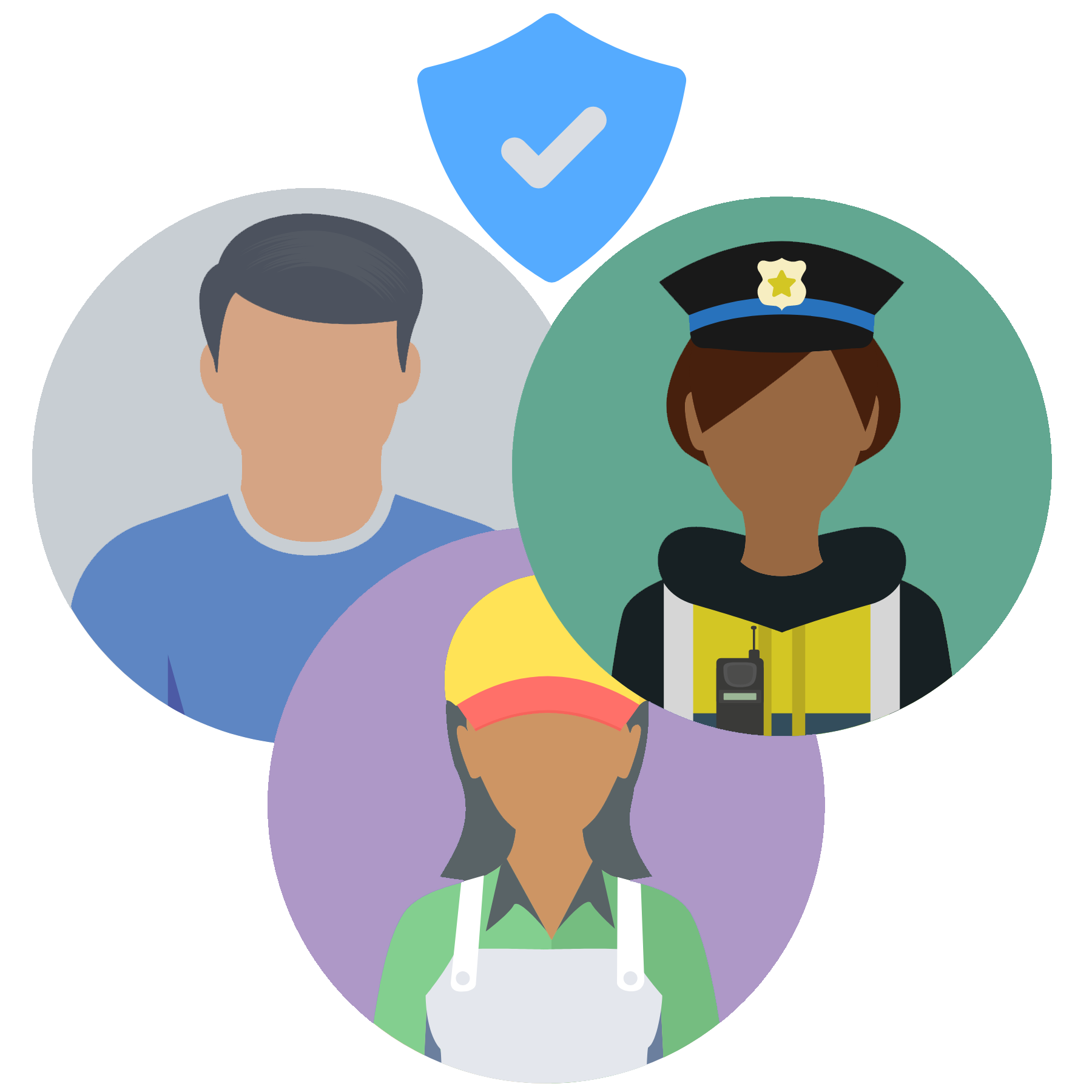Staying safe around others
- 0-1 Years
- 1-5 Years
- 5-11 Years
- 11-19 Years
- SEND
- Staying safe and accident prevention

As your child moves towards becoming an adult, they start to have more choice over where they go and things they do. So it’s important that your child or young person understands how to keep themselves safe.
Explore the topics on this page:
Teaching your child about strangers
Teaching your child about strangers
It is important to teach your child about keeping safe when out and about. As your child grows, they may start attending different events without supervision from a parent or carer. They may also start socialising in shared spaces with adults.
It’s important to talk to your child about what a stranger is and the dangers that are linked to adults they don’t know. Have these open discussions from an early age. This will help them know what to do if they feel unsafe or need help.
Here are some key points to discuss with your child to help them understand what a stranger is.
- A stranger can be someone we don’t know or someone we don’t know very well.
- We can’t decide who is a good and bad person just by looking at them.
Teach your child some basic things to keep them safe when out and about:
- If your child feels in danger or someone scares them or tries to touch them in a way that makes them uncomfortable, they should Yell, Run and Tell.
- If someone they don’t know talks to them, or they feel worried, they should always tell an adult. Even if the stranger tells them to keep it a secret or promises them a treat. If the adult they speak to doesn’t help, they should tell another adult.
- Let your child know who you would arrange to pick them up in an emergency. You can agree a secret password that this person can use, so your child knows if you sent them.
- Teach your child your mobile number.
- If they get lost they should stand still and give you time to find them. If they need to ask for help, they should find another parent with children or a safe stranger.
Teaching your child about safe strangers
An important part of growing up for a child is talking to people that they don’t know. So it’s important not to make your child feel scared of everyone. Let your child know that most people do not hurt children.
Talk to your child about what a safe stranger is. They might be a person in uniform such as a police officer or a teacher or supermarket worker.
If your child is worried or frightened they can look for a safe place to ask for help. For example, a shop, library, doctors surgery or bank.

Deciding if your child can go out alone
As a parent or carer, it is your decision when you let your child go out alone. There is no law stating a specific age that a child can go out by themselves, but it’s important to help your child feel as safe as possible when out and about.
It's normal to feel unsure when your child asks you to go out alone. The NSPCC suggest some questions you can ask yourself before you make up your mind.
- Where and when do they want to go?
- What do they want to do there?
- Who's going to be with them?
- How far away are they going?
- What time will they be back?
- How can I get hold of them if I need to?
Talk to your child and make rules together about keeping safe. Ensure their mobile phone is fully charged. Let them know the potential threats of being in busy, over-crowded areas. Things such as crime and pickpocketing can happen more easily. So they should keep their belongings safe and be mindful of those around them. It's also a good idea not to wear headphones in busy areas.
Make sure they know not to accept lifts from people they don’t know or people who have consumed alcohol or drugs.
In some social situations your young person may be exposed to drugs and alcohol. Make them aware of the dangers of drink spiking. Read our information on drug misuse and alcohol abuse.
Make sure they know what they would need to do if they need help. In an emergency they should always call 999.
Read this guide to help you decide whether your child is ready to go out alone.
Need more specific support for your child?
If your child needs more help or has additional needs, you can visit our specific section for extra support.
Last reviewed: 1 November, 2023
